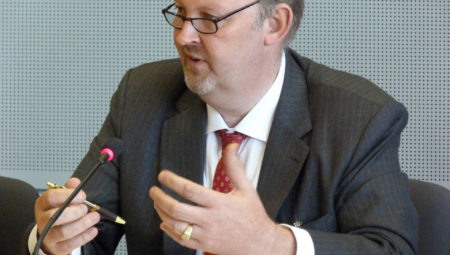The BBI JU was created with the aim of acting as a catalyst for the development of a bio-based European economy. Central to this approach is the biorefinery, scaling up novel bio-based processes to treat all kinds of organic waste and side-streams and transforming these into high value products and ingredients.
Mengal: ‘We are key to shaping the bio-based sector as a business community which provides the basis for a strong bio-based economy in Europe. At our Stakeholders Forum in The Square Brussels Meeting Centre on 7 December, we will bring that community together to share best practices, look towards the next phase in the initiative and witness the work of the projects already begun. It is only by joining public and private forces that we will be able to turn Europe not just into a pioneer but the worldwide leading player in all things bio-based, allowing us to conquer a global market share.’ At the meeting in December we will present the 65 on-going projects under the umbrella of the BBI JU programme, of which 6 are industrial scale flagship projects. The programme is well ahead of schedule in implementing the Strategic Research and Innovation Agenda, set by the industry and agreed with the EU, who is the public founding member’, Mengal states. ‘Compared to 2014, the private sector also is estimating an increased level of additional investment by a factor of 2.5, from €2 billion projected in 2014 to €5 billion in 2017. The bio-economy in Europe has clearly gained momentum.’
Challenges
Despite this momentum, Mengal recognizes a number of challenges that need to be addressed the coming years. ‘First of all, the involvement of the agricultural sector. We need this sector to be on board to realise its full potential as a partner in bio-based value chains, be it on first or on second-generation biomass. I say ‘partner’ and not ‘supplier’ as farmers or cooperatives need to form an integral part of the new value chains the programme is helping to structure. Within the CAP, this importance of this diversification of the primary sector, venturing also into non-food value chains, has been stressed. We need a strong and dynamic primary sector in Europe so that our food supply is guaranteed and that our rural regions in the EU will remain vital and attractive for our citizens to live in.’
The second challenge has to do with funding, especially financing the final step from demo to an industrial scale biorefinery. As it stands now, the US and Asia – both national and regional governments – have deployed different policies which include de-risking large-scale biorefineries in the realm of advanced biofuels and chemicals. ‘It is the old adagium: Europe is excellent at developing technologies but not in deploying these technologies. Of course we are concerned about this development. However, private sector investments have grown, as the interest of banks and venture capital funds.’
Interest in the European model
For the remainder of the Horizon 2020-timeline, which expires in 2020, there is no room for complacency, Mengal says. ‘Yes, we are ahead of schedule in terms of establishing flagship biorefineries, but there will always be challenges. For example, how to orchestrate the increase in use of second-generation feedstocks such as municipal waste, residues from the forestry sector or aquatic biomass. Furthermore, the mobilisation of young scientists to participate in building the bio-economy of the future. We also have a role in the policy (making) process to ensure that a stable legal and financial framework is in place which in turn stimulates private investments from companies within and outside the EU. I notice that foreign interest, both by governments and companies, in the BBI JU public-private model is growing. This also is a positive signal that we are on the right track, even though the road is long and windy.’



